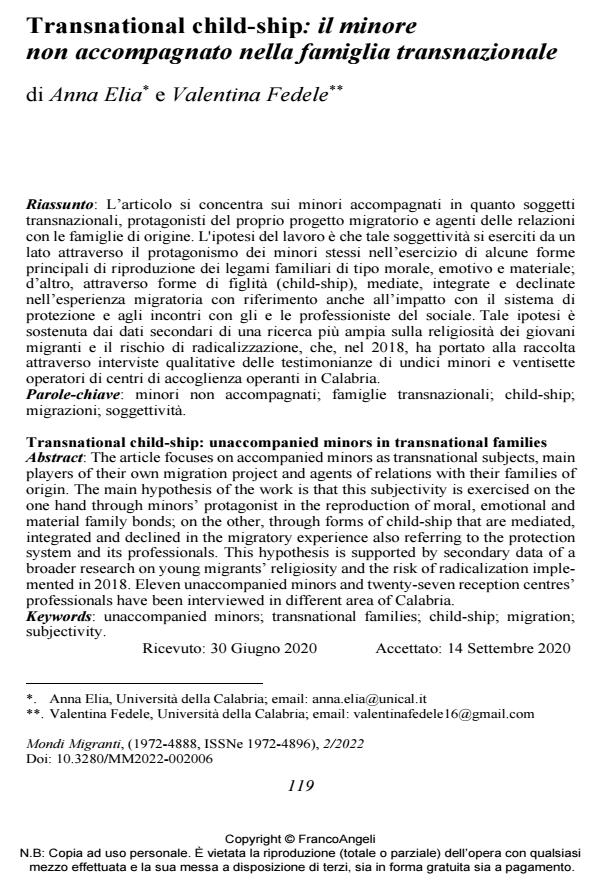Transnational child-ship: unaccompanied minors in transnational families
Journal title MONDI MIGRANTI
Author/s Anna Elia, Valentina Fedele
Publishing Year 2022 Issue 2022/2
Language Italian Pages 21 P. 119-139 File size 273 KB
DOI 10.3280/MM2022-002006
DOI is like a bar code for intellectual property: to have more infomation
click here
Below, you can see the article first page
If you want to buy this article in PDF format, you can do it, following the instructions to buy download credits

FrancoAngeli is member of Publishers International Linking Association, Inc (PILA), a not-for-profit association which run the CrossRef service enabling links to and from online scholarly content.
The article focuses on accompanied minors as transnational subjects, main play-ers of their own migration project and agents of relations with their families of origin. The main hypothesis of the work is that this subjectivity is exercised on the one hand through minors’ protagonist in the reproduction of moral, emotional and material family bonds; on the other, through forms of child-ship that are mediat-ed, integrated and declined in the migratory experience also referring to the protec-tion system and its professionals. This hypothesis is supported by secondary data of a broader research on young migrants’ religiosity and the risk of radicalization implemented in 2018. Eleven unaccompanied minors and twenty-seven reception centres’ professionals have been interviewed in different area of Calabria.
Keywords: unaccompanied minors; transnational families; child-ship; migration; subjectivity.
- Les assistants sociaux face à la parentalité transnationale : pratiques et stratégies dans l’accompagnement des mineurs isolés. Anna Elia, Valentina Fedele, in Pensée plurielle /2022 pp.148
DOI: 10.3917/pp.054.0148
Anna Elia, Valentina Fedele, Transnational child-ship: il minore non accompagnato nella famiglia transnazionale in "MONDI MIGRANTI" 2/2022, pp 119-139, DOI: 10.3280/MM2022-002006